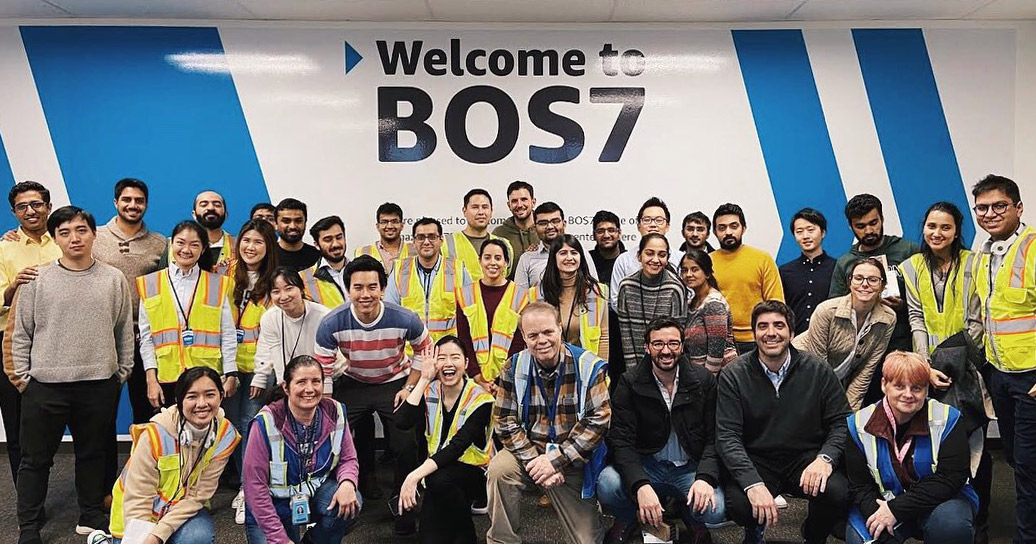On a Mission to Make Manufacturing Mainstream

A commercial banker and an entrepreneur from a family business might not seem like the usual suspects to lead a manufacturing club.
But Pro (Phubes) Asavasatitporn MBA’21 and Mild (Waranchalee) Suwanpimolkul MBA’21 see value in understanding manufacturing no matter your background or career goals. The two second-year MBA students bring this spirit of curiosity to their positions as co-presidents of the Babson Graduate Manufacturing Club.
“I don’t have a manufacturing background,” Asavasatitporn said. “I was a credit officer at a commercial bank, where I visited factories in order to determine if we wanted to offer them loans.”
For him, learning about manufacturing provides a new window into company operations. Asavasatitporn expects this perspective will prove valuable when he returns to corporate finance after Babson.
For her part, Suwanpimolkul describes herself as the “typical manufacturing girl.” She remembers running around her family’s rubber part factory as a child, and has ambitions of returning to the family business after completing her MBA. She is simultaneously partnering with her sister on a side project called ReServe, which aims to replace single-use plastics with reusable silicone products such as straws, tapping the family factory for its manufacturing needs.
A Diverse Network
“The manufacturing club’s mission is to expose our members to more than just production,” Suwanpimolkul said. “It’s also about the supply chain, operations, automation, technology, and talking with factory workers, owners, and managers to get multiple points of view.”
She sees a definite need for entrepreneurial leadership and the Babson mindset within manufacturing more broadly, opening up opportunities for Babson students. For example, Suwanpimolkul points to the importance of incorporating manufacturing and design thinking processes early on in new product development. “Especially in larger manufacturing companies, there are opportunities to lead by the ET&A™ (Entrepreneurial Thought & Action®) way,” she said.
Both Asavasatitporn and Suwanpimolkul emphasize that you don’t need to be in manufacturing in order to be part of the club. In fact, at its founding three years ago, then-co-presidents Srikanth Katikala and David Lefkowitz, both MBA ’19, also did not come from manufacturing backgrounds.
A curiosity about how the everyday objects we use in our daily routines are produced was the spark needed to bring the club to life. Since 2017, the club has grown and now includes 40-60 participants at many events.
“The manufacturing network is really strong at Babson,” Suwanpimolkul said. “People have diverse interests—everything from fast-moving consumer goods like fashion and textiles, to heavy industries like automotive or medical devices.”
From the Classroom to the Real World
Diverse interests aside, all Babson MBA students must take Operations and Information Management as part of the MBA core. The course explores supply chain management, design thinking processes, and other facets of manufacturing.
Asavasatitporn and Suwanpimolkul warmly recalled their Operations course with Senior Lecturer Richard Goulding last year. A last-minute opportunity presented itself for club members to visit an Amazon fulfillment center in Fall River, Massachusetts, but it required pulling half of the students out of Goulding’s class.
“Before we went, Professor Goulding gave us all sorts of guiding questions, things to observe, and tips that helped us think more critically on-site,” Asavasatitporn said.
“It was an amazing integration,” Suwanpimolkul added. “We recapped the Amazon visit for our Operations class afterwards, and Professor Goulding integrated what we saw in real life to his lessons.”
Taking the Club Virtual
Naturally, club excursions this year look a bit different. The leadership team is planning several virtual tours and fireside chats, as well as collaborations with other campus groups such as the Family Business Club, Healthcare and Life Science Club, and the Design Thinking Club.
“In the midst of all these challenges, an upside is that it is a little bit easier for us to reach out to industry experts as guest speakers and panelists,” Suwanpimolkul said. “People are a little more open to doing a Zoom rather than having to be with you physically.”
Another silver lining? This year’s factory treks have the potential to transport club members around the world, at least virtually. The team is actively planning its upcoming virtual treks, and is considering touring factories in India and Thailand.
Posted in Community



